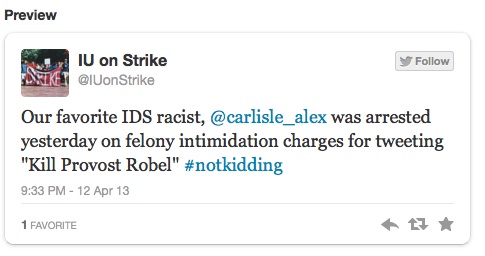On the good news front, students, faculty, staff, and friends associated with the Mathers Museum of World Cultures continue to come together to do good work and illustrate why museums are good places to gather, talk, think, study, and try to make a difference. As I move into my fourth month as the museum’s director, I feel so thankful for everyone’s interest in, and support of, the museum’s efforts. Here are some highlights from recent days.
Last Saturday the museum hosted a great “Meet the Collection” event. The focus was the museum’s collection of handmade chairs by Chester Cornett. This collection was assembled by folklorist Michael Owen Jones during his doctoral research at Indiana. Some chairs came to the museum at the time of Jones’ initial student research, but others were recently donated by this now distinguished UCLA scholar. Jon Kay, James Seaver, and Ellen Sieber all contributed remarks that led to a wider group conversation to which Joanne Stuttgen, Pravina Shukla, Henry Glassie and others contributed valuable questions, observations, and historical reflections.
A recent IU press release describes a 2nd Meet the Collection event as part of the series of events celebrating the museum’s 50th anniversary. The next gathering focuses on the museum’s collection of Aboriginal Australian bark paintings and will feature remarks by Earlham College art historian Julia May. The gathering will be held at the museum from 2 to 3 pm on Saturday, April 27. Please join us if you can. (The IU press release linked to here focuses on the upcoming Treasures of the Mathers Museum exhibition. I will focus on that in an future post.)
More good news at the museum was reported in the latest issue of Inside IU Bloomington. Bethany Nolan wrote a great article profiling the work the students in my Curatorship are doing studying the ethnographic collection given to the museum by the late Vincent and Elinor Ostrom. The quotes that the students gave Bethany would be music to any teacher’s ears. Alumni of this graduate course are now doing great things as museum professionals and it is exciting to teaching it again, particularly in a spirit of hopefulness. Public folklore and museum anthropology–these are fields that have roots that extend back to the time before the fields became rooted in academia. They were alt-ac (ie. alternative to academic careers) before these fields even had an “ac” track. As neighboring humanities disciplines begin (sometimes for the first time and in a spirit of panic and despair) to seriously consider non-academic careers for their graduate students, it is great to point to a deep tradition of engaged research-based public humanities work in museums and to be able to illustrate the skills required and the path ways that can be taken.
It helps to have role models. A graduate of my department, Michael Mason, has just been named Director of the Center for Folklife and Cultural Heritage at the Smithsonian. He is moving over to this new leadership role from the National Museum of Natural History, also at the Smithsonian, where he has been serving as Assistant Director for Exhibitions. (Read all about it in a recent Smithsonian press release.) I do not want to get ahead of the institution that has just hired her, but a current student in my department has just been hired into an impressive postdoctoral fellowship aimed at bridging academic and museum work in New York City. At the other most distinguished end of the career spectrum, one of our department’s most innovative and impactful graduates is Barbara Kirshenblatt-Gimblett. Barbara is in the news constantly now because she is playing a central role in the development of the (soon to open) Museum of the History of Polish Jews. As core exhibition designer for the museum, she is drawing upon all the lessons she has learned over an amazing career as a Jewish ethnographer, cultural theorist, museums studies specialist, public folklorist, and NYU professor of performance studies. Reporting on the (incredible) museum (to be) and her work is ubiquitous, but one can dip into it in a recent Tablet magazine story “Curator of Joy and Ashes” to gain a sense of the amazing effort.
Back home at the Mathers, I feel like we are having success.
Read more






